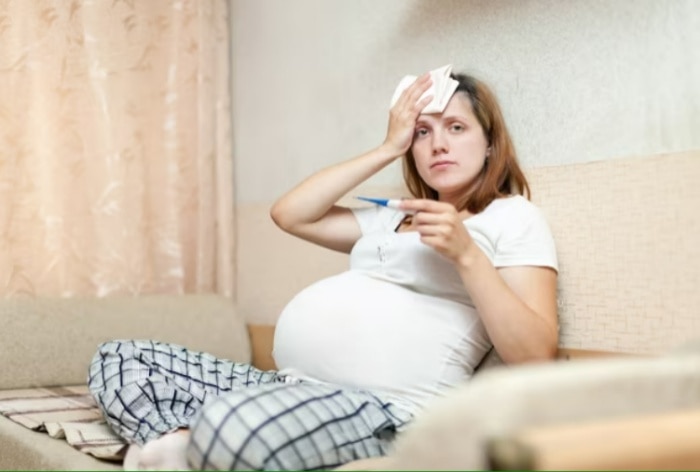Dengue Fever: Pregnant women are more vulnerable to diseases like dengue because their immune systems fluctuate throughout pregnancy in order to support the developing fetus

Dengue Fever: Dengue infections are increasing rapidly in the capital, and last week there were over 2600 cases reported, raising concerns that precautionary steps should be taken to stop the spread. The population should take the necessary actions to protect their health in light of the rapid spread of mosquito-borne sickness. Apart from the elderly and children, expecting mothers are like to have dengue than others. The consequences could be serious for the developing fetus, including preterm delivery and even fetus death.
Pregnancy-related dengue fever has potentially serious effects on both the mother and the fetus. However, the likelihood of definitive outcomes can be reduced with the right drug and prompt treatment. Pregnant women should also take special precautions to protect themselves from mosquito bites. Additionally, if the illness is infectious, hormonal changes during pregnancy may affect how severe the condition is.
How Dengue Affects Expecting Mothers?
- In addition to nosebleeds and gastrointestinal bleeding, severe dengue can also result in haemorrhage or bleeding problems. This might worsen the mother’s health and make things more complicated.
- High fevers and vomiting during pregnancy might cause severe dehydration. In order to prevent any difficulties during pregnancy, fluid control is crucial. Drink plenty of liquids, such as fruit and vegetable juices, and coconut water can also help you stay hydrated.
- Dengue fever can, in extreme situations, result in fetal loss or miscarriage. The severity of the disease during pregnancy is made clear by the terrible effects that might result from dengue fever if it is not promptly treated.
How Dengue Can Affect Infants?
- The likelihood of a preterm delivery is increased when the woman has dengue fever. Infants that are born prematurely may have breathing and developmental problems.
- Babies born to mothers who have dengue might be underweight. Due to their mother’s health issues, they are not in great shape. Babies may experience long-term health issues as a result of this.
- There are also instances when the fetus does not have enough time for the transmission of maternal protective antibodies. As maternal antibodies diminish, there is also a danger that newborns will contract dengue. The health of a newborn may be impacted.
The greatest defence against dengue is prevention, so wear appropriate clothing and use insect-repellent lotions whether you’re at home, at work, or travelling. Utilizing mosquito nets and avoiding waterlogging might reduce your risk of contracting dengue.
